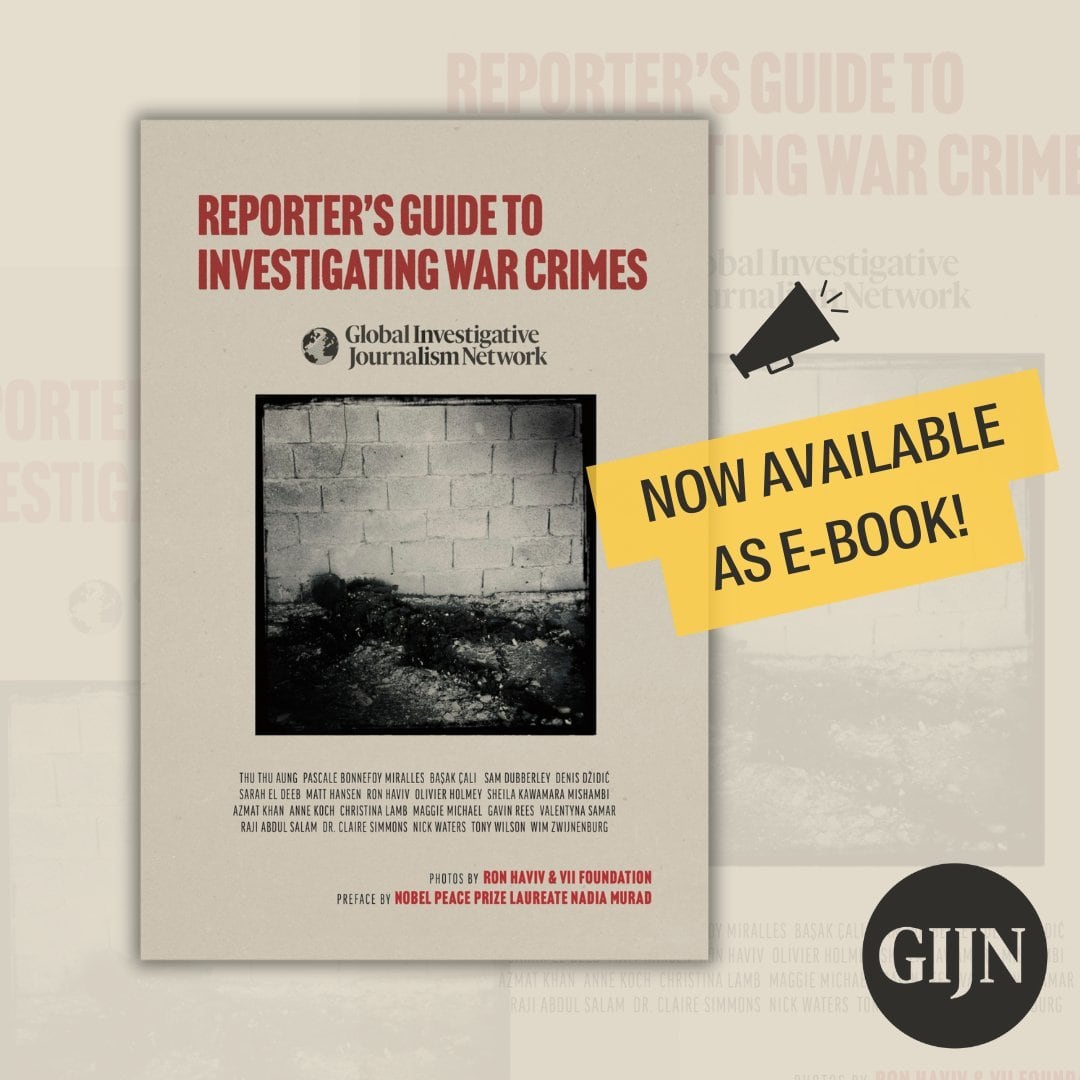GIJN launches their first E-Book — Reporter’s Guide to Investigating War Crimes, to better share GIJN’s comprehensive, 16-chapter Reporter’s Guide to Investigating War Crimes includes expert advice from more than two dozen specialists and journalists, covering everything from the legal aspects of war, attacks on civilians, conflict-related sexual violence, environmental crimes, banned weapons, genocide, forced disappearances, archiving evidence, open source research, military command structures, tracing war criminals, documenting with photo and video, physical and digital security best practices, and self-care for covering traumatic events.
New available on: Amazon
Publisher Description
This guide aims to help journalists who are documenting war and its outcomes by offering practical advice to enable better investigations. The wanton killing and abject treatment of human beings during times of war and conflict, and the attendant horrors of such violence, demand accountability. Journalists have a critical role in reporting and investigating war and conflict. Shining a light on the practices of those who wage war, asking tough questions, digging to find evidence and exposing lies and propaganda, and what is really going on — are a critical part of the work of investigative journalists, work that complements the work of war reporters, human rights researchers, photographers — and legal authorities. Reporting and investigating war and conflict are critical, whether or not a war crime may have been committed.
Investigative work by journalists is painstaking and can take months, even years, and it must be of the highest standard, especially if it is to stand up in a domestic or international court of law. Yet what is lawful in war is not the same as what is morally right, and reporting and investigating war and conflict are critical, whether or not a war crime may have been committed. The laws governing war and conflict are important but only part of a wider picture of accountability. Many practices considered to be legal still demand investigation and scrutiny — and journalists need to try to hold actors politically accountable for the suffering in war. The journalist’s role in reporting on possible war crimes is not to carry out a judicial investigation and there are real tensions between the roles and responsibilities of journalists and those of prosecutors and legal investigators – the protection of confidential sources; the importance of independence; and the need to publish, are but three of these examples.

